I have a single kubernetes service called MyServices which hold four deployments. Each deployment is running as a single pod and each pod has its own port number.
As mentioned all the pods are running inside one kubernetes service.
I am able to call the services through the external IP Address of that kubernetes service and port number.
Example : 92.18.1.1:3011/MicroserviceA Or 92.18.1.1:3012/MicroserviceB
I am now trying to develop and orchestration layer that calls these services and get a response from them, However, I am trying to figure out a way in which I do NOT need to specify every micro-service port number, instead I can call them through their endpoint/ServiceName. Example: 192.168.1.1/MicroserviceA
How can I achieve above statement?
From architecture perspective, is it a good idea to deploy all microservice inside a single kubenetes service (like my current approach) or each micro-service needs it's own service
Below is the kubernetes deployment file ( I removed the script for micro-service C and D since they are identical to A and B):
apiVersion: v1
kind: Service
metadata:
name: myservice
spec:
selector:
app: microservice
ports:
- name: microserviceA
protocol: TCP
port: 3011
targetPort: 3011
- name: microserviceB
protocol: TCP
port: 3012
targetPort: 3012
- name: microserviceC
protocol: TCP
port: 3013
targetPort: 3013
- name: microserviceD
protocol: TCP
port: 3014
targetPort: 3014
type: LoadBalancer
---
apiVersion: extensions/v1beta1
kind: Deployment
metadata:
name: microserviceAdeployment
spec:
replicas: 1
template:
metadata:
labels:
app: microservice
spec:
containers:
- image: dockerhub.com/myimage:v1
name: microservice
ports:
- containerPort: 3011
imagePullSecrets:
- name: regcred
---
apiVersion: extensions/v1beta1
kind: Deployment
metadata:
name: microserviceBdeployment
spec:
replicas: 1
template:
metadata:
labels:
app: microservice
spec:
containers:
- image: dockerhub.com/myimage:v1
name: microservice
ports:
- containerPort: 3012

